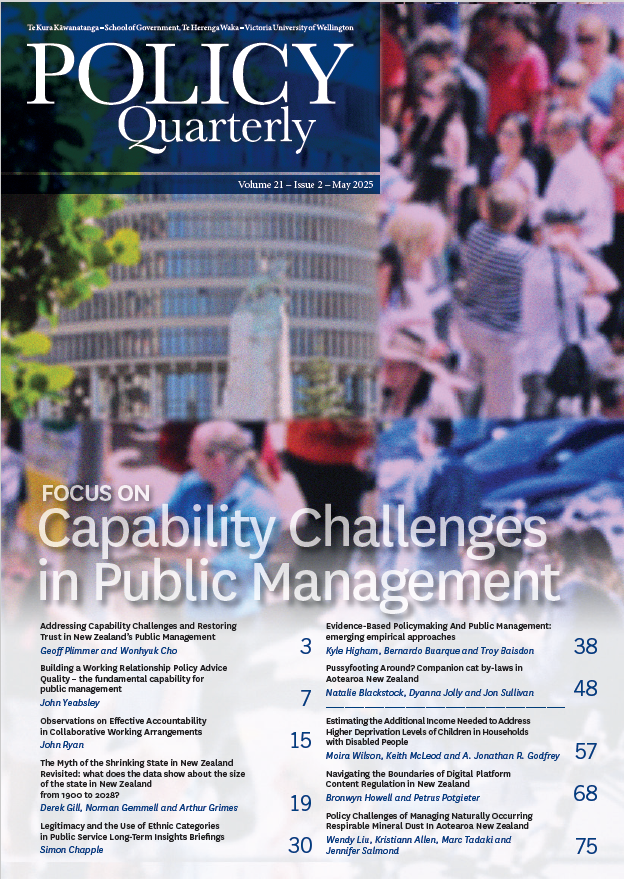The Myth of the Shrinking State in New Zealand Revisited
What does the data show about the size of the state in New Zealand from 1900 to 2028?
DOI:
https://doi.org/10.26686/pq.v21i2.9816Keywords:
size of the state, neoliberal reforms, New Zealand reforms, fiscal policy, stock of regulation, net worth, Covid spendingAbstract
This project uses a variety of lenses – the state as spender, producer, employer, investor and steward – to assess how the size and shape of the state has changed. We explore the conventional wisdom that New Zealand’s ‘neoliberal’ reforms of the 1980s and early 1990s resulted in a dramatic reduction in the size of the state. We find – with two notable exceptions – that the shrinking of the state over this period of reform is an urban myth. Indeed, relative to GDP, spending on real resources to support public production and investment in non-market outputs has been stable or has increased slightly since the 1990s, while the Crown’s balance sheet has steadily strengthened. We include an additional lens to explore the proposition that ‘deregulation’ in 1980s and 1990s led to a reduction in the regulatory state. We find the opposite: that the number of words used in the New Zealand statutes has grown steadily since 1908, but dramatically from the 1960s.
In the last decade, under the Ardern–Hipkins Labour administration, government current spending on collective consumption grew rapidly to reach record levels, even after allowing for Covid-19-related spending programmes. The fiscal adjustment proposed by the National–Act–New Zealand First administration in the 2024 Budget involves winding much of this increase back.
Downloads
Downloads
Published
Issue
Section
License
Permission: In the interest of promoting debate and wider dissemination, the IGPS encourages use of all or part of the articles appearing in PQ, where there is no element of commercial gain. Appropriate acknowledgement of both author and source should be made in all cases. Please direct requests for permission to reprint articles from this publication to Policy-Quarterly@vuw.ac.nz.



